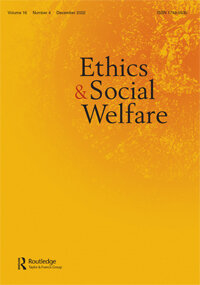This study explores young people’s perceptions of their existential well-being during the transition after leaving care. The authors use the theoretical framework of ‘existential well-being,’ which is a relational approach. The study deploys participatory action research methodology and involves peer research with 74 young people leaving care aged 17–32 in Finland (2011–2012) and England (2016–2018). The data was gathered through semi-structured interviews and thematically analysed.
We identified three inter-linking categories of existential well-being related to the basic issues of being a person: who one is and where one belongs. Self-feeling involves the importance of how one feels about oneself and one’s physical and mental health and security. Self-realisation relates to one’s hopes and the means for making one’s own decisions in everyday life. Belonging concerns the confidence one expresses in one’s supportive social networks.
The findings highlight that, alongside the practical issues of out-of-home care, attention should increasingly focus on young people's reflections on their own lives, and an ethics of care should be developed to better meet their needs. These findings argue for the need to further support young people’s psychosocial and mental health in child welfare policy and practice.

